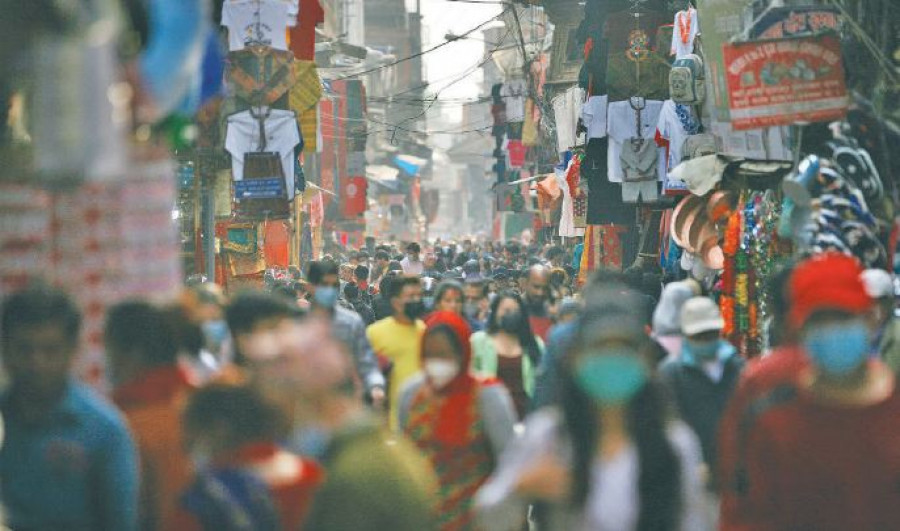Editorial
A forgettable year
Not much has changed a year after Nepal went into lockdown.
When the government ordered the nationwide lockdown on March 24 last year, most Nepalis naïvely believed the coronavirus would really go away within a week if no one stepped out of their homes. We had just recorded the second coronavirus case in the country, and it would be weeks before the transmission began spreading like wildfire. Week after week, people dutifully obeyed the government's stay-at-home order because that was the right thing to do as speculation and misinformation about the transmission and potency of the virus swept through the country.
While the lockdown gave a privileged few an opportunity to stay together with family and engage in mundane things that didn't seem probable in normal times, it was doomsday for many others who saw their savings deplete drastically. The poor and marginalised went to bed on empty stomachs as they lost their jobs or other sources of income. People were condemned to embark on long journeys home as their financial resources shrank and had to live on the charity of others.
After going hungry for days, Surya Bahadur Tamang passed away on the roadside in Kirtipur; Malar Sada died in his field in Saptari after returning empty-handed from Biratnagar where he worked as a labourer. Hom Bahadur Rana Magar, a carpenter, died just metres away from home after returning to Dhading from Chitwan on foot. Thousands of Nepalis were stranded on the India-Nepal border as security personnel restricted the influx of Nepali migrants who were returning home after they lost their means to livelihood in India.
Devoid of any capacity to think out of the box, the government kept on renewing the lockdown week after week as if it was the one and only sanjeevani booti against Covid-19. Initially, lockdown was accepted globally as a viable solution to stop the spread of the virus; but it soon became clear that it only gave us a brief window to gear up for a robust defence mechanism that included beefing up medical infrastructure, resuscitating the economy, and streamlining social security measures to support the needy.
Alas, the government's Covid-19 management was—or rather continues to be—a textbook case of how not to handle a crisis, not least a deadly pandemic. Yes, the government's management failure has to be spoken of in the present tense, as if it were a necessary historical continuity that precluded the possibility of a rupture. A year after we shut ourselves from the outside world in a bid to escape the virus, we are as clueless as ever as to where we have come from, where we have arrived, and where we are headed now.
Much of what the government has achieved in the fight against the virus is the result of our being a part of the global community rather than capability; we have held on by kaifiyat rather than by kabiliyat. This is not to discredit the enormous courage and perseverance shown by frontline workers as well as various other stakeholders in fighting the virus despite a lack of resources and a support system to fall back on. On the political front, though, it is for all to see how leaders across party lines, especially the warring factions within the now-disbanded Nepal Communist Party, cared about their petty concerns even as they left the citizens to fend for themselves.
As transmission cases rise exponentially yet again in neighbouring India, Nepal cannot afford to sit back and relax. We cannot afford to go under another lockdown either, although the government is likely to prescribe it again. The key is to continue keeping our guard up against the virus. Wear the mask to wear the virus down.




 13.12°C Kathmandu
13.12°C Kathmandu














